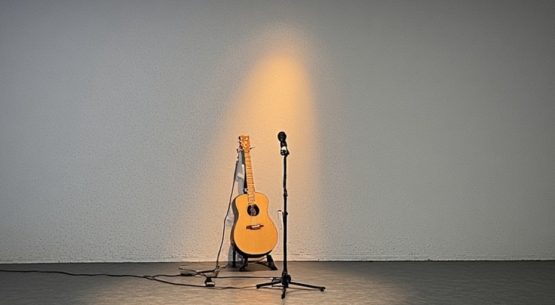The pandemic stopped everyday lives, forcing people to remain indoors, disconnected from others and unable to meet new people and experience things together. In a post-pandemic world, people are resuming their outdoor activities and reconnecting with one another. Instead of attending mainstream events and huge stadiums like before, they rely on smaller venues and local haunts to get their social fix.
Enhanced Community and Connection
Smaller venues give people a sense of community in their area. During the pandemic, small venues banded together to remain in business until people could go out and enjoy shows again. That camaraderie has carried over post-pandemic, with venues viewing each other as partners, rather than competitors, that share art and music with locals.
The National Independent Venue Association is a notable example of this kind of community. It was founded in 2020 and holds an annual conference that brings together industry professionals passionate about supporting small, independent venues.
There is also a sense of community between small venues and other local establishments, as people often book cabs, stay in hotels, and purchase food from local restaurants before and after attending shows. Therefore, when smaller venues succeed, so do the surrounding businesses, creating a sense of community and promoting thriving localism.
While people are going outside and socializing again, nearly half of Gen Z spend at least 10 hours online a day, contributing to post-pandemic depression impacted by feelings of isolation and missing out. That is why real-world connections are vital for fostering fulfilling relationships that improve mental wellness and help people feel more present in the world. Small venues and local areas provide that.
Affordable Access to Art and Entertainment
Large concerts are becoming increasingly expensive, largely due to the reselling market and the lack of regulations for large-scale ticket sellers. The pandemic cost many people their jobs, and some are still trying to recover from the debt they incurred. Overpriced tickets often lead to many fans missing out on the experience.
Small venues offer affordable tickets, typically $10 to $50, for fans to see artists live and in a more personal setting. These prices also create a sense of community by bringing together regulars who can now afford to see shows more frequently. Finn Howe, president of Amp, an Arizona State University club that supports local free concerts, celebrates this, saying, “The beauty of local shows is you start to see familiar faces as you go to these shows.”
Intimate Interactions and Embracing the Good
Fans typically attend concerts to interact with their favorite artists. Small venues offer this interaction in a more intimate way, which can make them feel closer to the artist. It also provides artists with more intimate interactions with fans, reminding them why they make music and why fans love their work.
Nadine Shah, an indie artist, shared why she loves playing smaller venues, stating, “My favourite experiences as a professional musician are based in these small independent venues. They feed me well, they treat me with respect which I never see in the music industry, they reaffirm why I do what I do. I make music for people who love music. I pray we don’t lose these hubs of kindness and love.”
Both artists and fans benefit from smaller shows. Bob Dylan included small venues in his 2025 tour, providing a more personal experience for fans and showing that even big artists, who can sell out arenas, are opting for the more intimate interaction that smaller venues provide.
In today’s technology-driven world, small venues also offer a chance to disconnect from the digital noise and be fully present. They create a space for pure enjoyment, where people can immerse themselves in a performance. Whether it’s laughing with a comedian, getting lost in music or being captivated by a play, these experiences provide a refreshing and positive break, allowing the audience to connect with art and each other.
People Need People
Small venues and localism have become increasingly popular since the pandemic. Many people have developed a newfound desire to interact with others and form meaningful connections with those around them. After spending so much time isolated, a small venue can provide a pleasant oasis for interaction and give back to the local community by inviting people into the town to see a show.
Discover more from Ear To The Ground Music
Subscribe to get the latest posts sent to your email.






